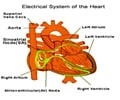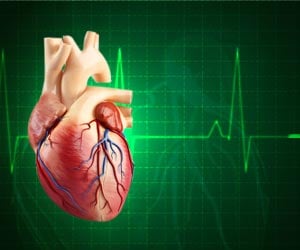Nicotine present in certain types of e-cigarettes could pose a heightened risk, potentially leading to irregular heartbeat or heart arrhythmias.

Nicotine Formulation Influences the Autonomic and Arrhythmogenic Effects of Electronic Cigarettes
Go to source) In the study, published in the journal Nicotine and Tobacco Research, researchers compared heart rate and heart rate variability in mice exposed to vape aerosols containing different types of nicotine. The aerosols contained either freebase nicotine, used in older types of e-cigarettes; nicotine salts, used in Juul and other pod-based e-cigarettes; or racemic freebase nicotine, simulating the recently popularized synthetic nicotine; and their effects were compared to nicotine-free e-cigarette aerosols or air.
Nicotine Concentration Effects on Cardiac Arrhythmias
In addition, the research team delivered increasing concentrations of nicotine over time, from 1 percent to 2.5 percent to 5 percent. The nicotine salts induced cardiac arrhythmias more potently than freebase nicotine, and the cardiac arrhythmias increased with the higher concentrations of nicotine."This suggests that nicotine is harmful to the heart and counters popular claims that the nicotine itself is harmless," said Alex Carll, Assistant Professor in Department of Physiology, at University of Louisville (UofL).TOP INSIGHT
Nicotine found in specific e-cigarette types might pose greater harm, elevating the risk of irregular heartbeat or heart arrhythmias. #ecig #cigarettes #smoking #heartbeat
In the autonomic nervous system, sympathetic dominance increases the fight-or-flight response in bodily functions, including heart rate."The nicotine in e-cigarettes causes irregular heartbeats (arrhythmias) in a dose-dependent manner by stimulating the very receptor that many heart medications are designed to inhibit," Carll said.The findings conclude that inhalation of e-cig aerosols from nicotine-salt-containing e-liquids could increase cardiovascular risks by inducing sympathetic dominance and cardiac arrhythmias.
The researchers concluded that if these results are confirmed in humans, regulating nicotine salts through minimum pH standards or limits on acid additives in e-liquids may mitigate the public health risks of vaping.Even without regulatory changes, however, the research suggests that users may reduce potential harm by opting for e-cigarettes with freebase nicotine instead of nicotine salts or using e-cigarettes with a lower nicotine content.
Reference:
- Nicotine Formulation Influences the Autonomic and Arrhythmogenic Effects of Electronic Cigarettes - (https://academic.oup.com/ntr/advance-article-abstract/doi/10.1093/ntr/ntad237/7452838?redirectedFrom=fulltext&login=false)
 MEDINDIA
MEDINDIA




 Email
Email










